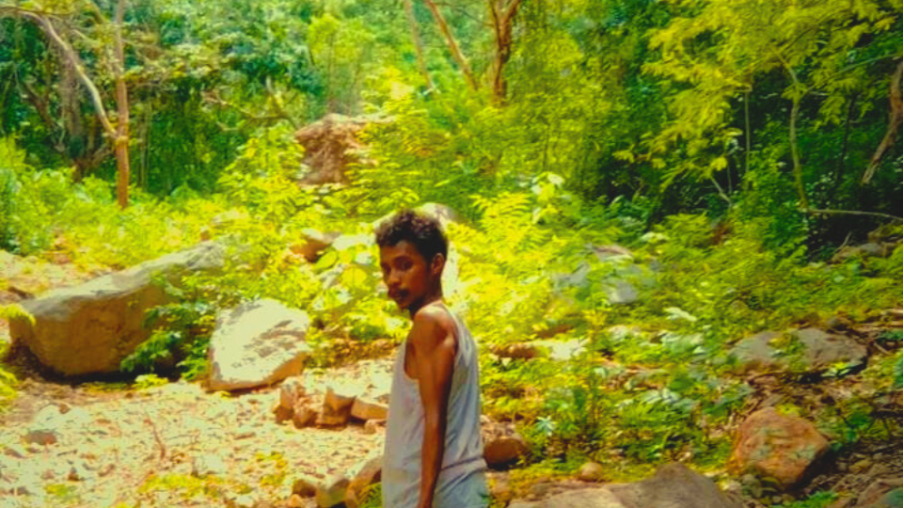
| September 5, 2024
Karli and the Forest: If a Tree Dies, Replant It
Humanis Foundation
 From Kawalelo Village, East Flores, NTT, the forest is three kilometers away, which he reaches on foot. He sometimes goes alone, at other times with friends, and occasionally with his younger sibling. However, he admitted that he mostly goes alone.
From Kawalelo Village, East Flores, NTT, the forest is three kilometers away, which he reaches on foot. He sometimes goes alone, at other times with friends, and occasionally with his younger sibling. However, he admitted that he mostly goes alone.
Karli, as he is known, visits the forest to check on the Betung Bamboo (giant bamboo) trees that he and his friends have planted. Over the past three years, they have successfully planted over a thousand bamboos near the Wato Nitung spring and river.
The thousand bamboo seedlings were generously provided by various parties, including NGOs and the village government. Before receiving this support, he obtained bamboo by collecting small branches found on the roadside.
They plant betung bamboo seedlings in spring and river areas because bamboo absorbs and retains water. “By maintaining the spring, it provides water to two neighbourhoods in Kawalelo Village, primarily for drinking purposes,” he added.
A good effort does not always have a positive impact. Karli and his friends had a challenging experience in 2021. They planted 2,500 banyan, forest kapok, and sugar palm seedlings on the riverbanks in the hope of preventing the forest from becoming drier. Unfortunately, a flash flood hit the area, resulting in the loss of most of the seedlings.
Karli mentioned that only ten or a dozen banyan and forest kapok trees survived, and all the sugar palm trees were uprooted by monkeys.
Learning from this setback, Karli now prefers to plant Betung Bamboo and diligently checks on them once a week to ensure none of them perish. If any of the bamboo plants die, he promptly replaces them.
***
In East Flores, there are more young people like Karlikada. They are committed to maintaining access to clean water from springs and rivers and ensuring the forests remain green and abundant. For them, protecting nature is synonymous with safeguarding life.
This passion for environmental conservation is not without cause. The increasingly severe climate crisis has had a profound impact on the region. Its effects are far-reaching and extensive.
The climate crisis has disrupted the weather patterns, leading to longer summers, dwindling springs, and less fertile fields that rely solely on rainwater. As a result, the rainy season has become shorter, agricultural productivity has declined, and life sources are decreasing. This has forced people to seek employment abroad, often far from their families.
On July 5, 2024, Karlikada and a group of young individuals visited the East Flores Regional Development Planning, Research and Development Agency (Bappelitbangda). They engaged in a dialogue with the East Flores Regency Government officials to discuss their conservation efforts for springs, the preservation of local food, and the development of local food processing entrepreneurs. This dialogue was facilitated by the Larantuka Socio-Economic Development Foundation (YASPENSEL) and the Ayu Tani Mandiri Foundation, both members of the BAIK Food Coalition.
During the meeting, Karlikada also requested support from the local government for bamboo seedlings. Unfortunately, their efforts did not yield the desired outcomes. Nevertheless, Karlikada harbours no regrets, as he understands that success does not always come easily.
“It seems like our proposal was overlooked. They mentioned that the local government is focusing on the springs for planting nutmeg trees. Despite our lack of formal education, we decided not to contest their decision,” he remarked with a chuckle.
Karlikada and his friends’ endeavours to advocate for climate action and solicit government support extended beyond this instance. Their efforts were showcased at the Climate Party in Jakarta in mid-July 2024, the Millet Festival in Jakarta organised by the Indian Embassy and ASEAN in 2023, and at the cross-country forum at the Asia Pacific Climate Week in Johor Baru, Malaysia.
On August 21, 2024, Karlikada and his friends are set to participate in a food policy dialogue, inviting the National Development Planning Agency (Bappenas), the National Food Agency, the Ministry of Agriculture, the Ministry of Villages, and the Ministry of Environment and Forestry (KLHK), among others. While the response from the central government is uncertain, Karlikada is determined to once again advocate for his and his friend’s actions and seek support from the government.

